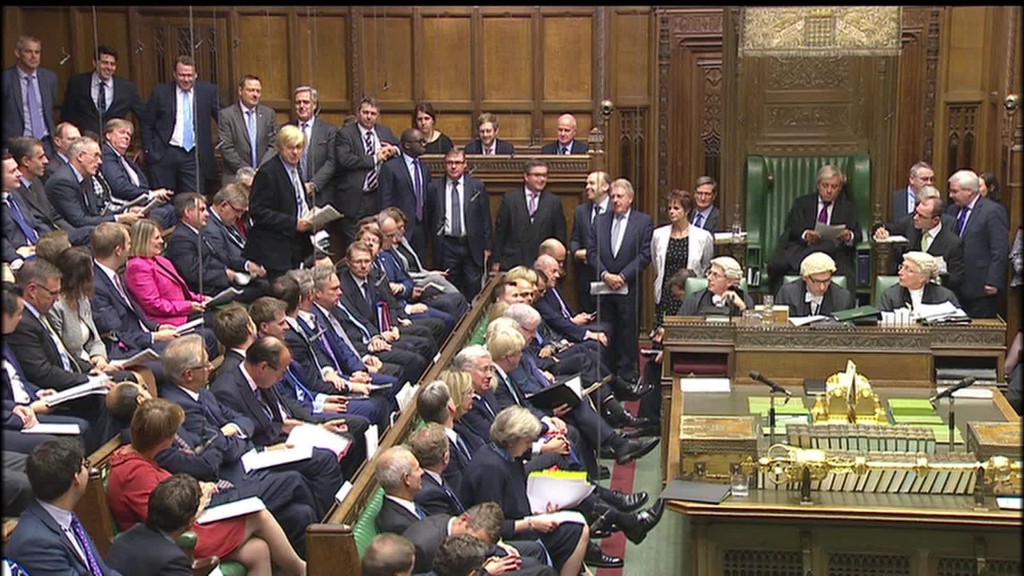
The U.K. government is facing a £25 billion ($31 billion) hole in its finances because of Brexit, the Institute for Fiscal Studies said Tuesday.
Slowing growth and lower tax revenues will hit the budget and lead to higher borrowing, the U.K.'s leading independent economic think tank said in a research paper called "Winter is Coming."
Government tax revenues will fall by as much as £31 billion ($38.4 billion) by 2019, if there is no major policy change. If it stops all payments to the European Union, the government could save £6 billion ($7.4 billion) a year.
But those potential savings won't be anywhere near enough to cover for the drop in revenue.
Related: What happens next after shock court ruling
Britain was facing a budget challenge even before the June referendum on EU membership. But the IFS expects things to get much worse as a result of the Brexit vote, which has created a huge degree of uncertainty about the country's future ties with its biggest trading partner.
The Bank of England, as well as most other economic forecasters, predict growth to be slower and inflation higher than before the U.K. voted to leave the EU.
Tony Blair: U.K. may need a second vote on Brexit
The government will unveil its spending plans in just over two weeks. It has already abandoned its goal of achieving a budget surplus by 2019.
There are still very few details about how the government plans to approach the Brexit negotiations and what kind of trade deal it wants with the EU.
Prime Minister Theresa May said formal talks with the EU will begin before March 2017. That could mean the U.K. will leave the EU in early 2019. But that plan was put in doubt last week, when a high court ruled that members of parliament must be given a say in the process.


